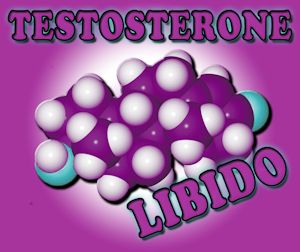Video Link: https://vimeo.com/293249253
Video Download: Click Here To Download Video
Video Stream: Click Here To Stream Video
 Testosterone and Hormone Deficiency Associated with Physiological Decline in Elderly Men
Testosterone and Hormone Deficiency Associated with Physiological Decline in Elderly Men
It has long been known that Low-T affects male sexual health in a profound way, leading to sexual insufficiency as well as reduced libido.
There is also a growing understanding with regard to how Testosterone affects male masculinity and physiological health. There is a large push in the medical literature right now to scientifically evaluate how Testosterone Deficiency affects geriatric health and wellness.
Australian Elderly Low-T Study
A recent study was published by Australian researchers and presented at the 16th Annual International Congress of Endocrinology.
With this study, researchers presented strong evidence that geriatric men with Low-T or other forms of sex-hormone deficiency experienced double the risk of experiencing a physiological decline over the course of a two year period when compared to men of the same age with comparatively high sex hormone levels.
The lead researcher for this Elderly Low-T Study was Benjamin Hsu, a representative of the University of Sydney Australia.
He and his research partners collected medical and health information from over 1300 men all at least seventy years of age, which received health exams between the years of 2005 and 2007, which also received a second assessment after two years.
Health Data Collected from CHAMP Patients
All of the patients that were assessed chose to be a part of a medical study group known as the Concord Health and Ageing Project, also known as CHAMP. CHAMP is one of the largest surveys of geriatric health ever collected, and new data continues to be collected.
CHAMP is primarily used for the study of diseases associated with aging, including urinary incontinence, osteoporosis, and Alzheimer's disease, but the data is also highly useful for a wide variety of other medical conditions associated with the aging process, including Testosterone Deficiency and Frailty, the two issues at play in Dr. Hsu's study.
Patients that chose to participate in the CHAMP study were originally recruited in 2005 and 2006. They received a health evaluation as they joined the study, and return for periodic examinations over time.
The ultimate goal of the study is to collect uniform health data after five and ten years, although many patients have chosen to participate more often. 1705 men are participating in the CHAMP study, and over 1300 were considered eligible candidates for this study.
Patients Self-Reported Their Ability To Perform Normal Daily Tasks
Upon entering the study, patients both provided a self-assessment via a medical questionnaire, and also met at Concord Hospital for a three-hour clinical evaluation.
The self-report included questions regarding a wide variety of activities that are associated with one's ability to live and take care of oneself, including their ability to engage in personal hygiene, dress, eat and walk. A part of their clinical evaluation included providing a blood sample that was thoroughly evaluated to provide ample diagnostic data with regard to their health.
All Patients Received Hormone Evaluation
Among this diagnostic data was hormone testing. All patients in the study were evaluated for their levels of both male-associated (dihydrotestosterone and Testosterone) and female associated hormones (estrone and estradiol).
Related to Testosterone, patients also engaged in the examination which gathered data on their strength, including the power of their quadriceps and the strength of their grip.
 Hormone Deficiency Inhibits Quality of Life
Hormone Deficiency Inhibits Quality of Life
When the data was analyzed, it was discovered that men that don't produce enough Testosterone, Estrone, or Estradiol are more likely to experience issues with their day-to-day function than men with healthy Testosterone Levels after two years.
The primary issue which induced this frailty appeared to be a reduction in the strength of the muscles, although other factors are likely at play.
Based on the data collected and analyzed, Dr. Hsu and his colleagues came to the conclusion that Testosterone Deficiency leads to reduced quality of life and personal freedom mainly because of the deleterious effects of Low-T upon muscle health.
Harvard Elderly Low-T Study
Other studies have come to similar conclusions. A Harvard study, led by Thomas Storer, examined the relationship between Low-T Treatment and cardiovascular ability.
In particular, they examined how Testosterone Treatment affected the ability of the cardiovascular system to absorb oxygen, as well as the rate at which it could expel lactate.
The data that was used in this study was collected from a previously conducted study of males over sixty-five that were selected because they had issues with frailty which reduced their ability to engage in a normal and healthy everyday life, and also because they were clinically evaluated to suffer from Low-T.
This study involved 64 patients, 36 of which received topical placebo, and 28 patients that received 10 mg of Testosterone Topical Gel.
Participants stayed on this health regimen for six months, then came back for evaluation. Six months is generally considered to be how long for Testosterone Therapy for Low-T to produce significant benefits with regard to health and wellness, especially with regard to physiological muscle health.
Testosterone Increases Aerobic Capacity
To assess aerobic capacity, the participants engaged in cycling exercise both before treatment and after treatment in order to evaluate changes in cardiovascular capacity.
The results were significant. Patients that received a placebo actually experienced a loss of exercise capacity, while those that received Testosterone had a modest increase in their capacity for exercise.
It is considered a normal aspect of aging for the anaerobic capacity to slowly decline as one ages, so the results were quite profound, showing that Testosterone Decline plays a role in increasing frailty associated with aging and that Testosterone Therapy is a valid way to alleviate this aspect of hormone imbalance and improve quality of life.
Subjects on placebo experienced a decline in oxygen absorption which was double the rate at which the researchers hypothesized.
On the other hand, participants that engaged in six months of Testosterone Therapy experienced a decline which was almost 3.5 times slower than was hypothesized.
Similar results were found with regard to the lactate expulsion rate. The experimental group was more readily able to expel this exhaust, which is also an element of peak aerobic capacity.
Researchers were able to conclude, based on this evidence, that Testosterone Therapy Gels had the capacity to slow down the physiological decline which leads to frailty and decreased quality of life.
 Geriatric Testosterone Research Booming
Geriatric Testosterone Research Booming
The body of evidence with regard to Testosterone and Aging continues to grow. Testosterone is a potent anabolic hormone, and it promotes optimal muscle health for both men and women.
These two studies provide evidence regarding why it is important for men to undergo Hormone Evaluation in order to ensure that their Hormones are in balance and not affecting their quality of life.
Testosterone Misconceived as a Sexual Disorder in America
In America, Testosterone Deficiency is primarily considered by the public as a sexual disorder, so many men don't get tested as they should because they don't realize the serious effects of Low-T move far beyond Sexual function and desire, and how Low-T impacts health in a variety of ways.
Luckily, men do not tend to experience issues with bone health as commonly as women, but this also shows why Testosterone is important.
Men are less at risk of osteoporosis, because their elevated Testosterone Levels, as compared to women, lead them to have stronger bones.
Loss of bone mineral density is a symptom of aging-related to hormone decline, but it tends to become symptomatic far later in the life span, if at all, compared to female patients.
Contact Us Today For A Free Consultation

- Adverse Effects of Testosterone Therapy in Adult Men: A Systematic Review and Meta-Analysis [Last Updated On: July 2nd, 2024] [Originally Added On: June 4th, 2010]
- Low Testosterone Levels, Foods That Increase Testosterone Levels wwwSelf-Improvement-Bible.com [Last Updated On: November 12th, 2023] [Originally Added On: May 30th, 2011]
- Low Testosterone in Men: The Next Big Thing in Medicine! - Abraham Morgentaler, MD [Last Updated On: May 7th, 2023] [Originally Added On: June 3rd, 2011]
- How To Determine Testosterone Levels By Looking At Your Ring Finger [Last Updated On: December 7th, 2017] [Originally Added On: June 30th, 2011]
- Prolab Horny Goat Weed Testosterone Booster Supplement Review [Last Updated On: November 23rd, 2023] [Originally Added On: July 19th, 2011]
- The Healthy Skeptic: Products make testosterone claims [Last Updated On: August 13th, 2024] [Originally Added On: September 11th, 2011]
- How To Naturally Increase Testosterone [Last Updated On: November 21st, 2023] [Originally Added On: September 28th, 2011]
- Testosterone Production - Video [Last Updated On: November 25th, 2024] [Originally Added On: November 20th, 2011]
- Testosterone makes us less cooperative and more egocentric, study finds [Last Updated On: January 23rd, 2018] [Originally Added On: February 1st, 2012]
- Testosterone makes us less cooperative and more egocentric [Last Updated On: January 24th, 2018] [Originally Added On: February 1st, 2012]
- Too much testosterone makes for bad decisions, tests show [Last Updated On: May 4th, 2015] [Originally Added On: February 1st, 2012]
- Today in Research: Testosterone's Negative Effects; Diet Soda Death [Last Updated On: January 2nd, 2018] [Originally Added On: February 2nd, 2012]
- Testosterone drives ego, trips cooperation [Last Updated On: December 2nd, 2017] [Originally Added On: February 4th, 2012]
- FDA approves BioSante/Teva's testosterone gel [Last Updated On: May 4th, 2015] [Originally Added On: February 15th, 2012]
- 'Manly' Fingers Make For Strong Jawline in Young Boys [Last Updated On: December 1st, 2017] [Originally Added On: February 15th, 2012]
- Teva, BioSante Win U.S. Approval for Testosterone Therapy [Last Updated On: December 10th, 2017] [Originally Added On: February 15th, 2012]
- BioSante Gains on Approval of Testosterone Gel: Chicago Mover [Last Updated On: January 8th, 2018] [Originally Added On: February 16th, 2012]
- BioSante soars following drug approval from FDA [Last Updated On: December 26th, 2017] [Originally Added On: February 16th, 2012]
- Antibodies, Not Hard Bodies: The Real Reason Women Drool Over Brad Pitt [Last Updated On: December 24th, 2017] [Originally Added On: February 21st, 2012]
- Almark Publishing Releases Book From Mark Rosenberg, M.D. Revealing Natural Discoveries Associated With Low ... [Last Updated On: May 4th, 2015] [Originally Added On: February 28th, 2012]
- Testosterone Replacement Clinic Comes to Kansas City with Potential to Help Thousands of Men [Last Updated On: May 4th, 2015] [Originally Added On: March 1st, 2012]
- Study examines the relative roles of testosterone and its metabolite, dihydrotestosterone in men [Last Updated On: December 2nd, 2017] [Originally Added On: March 7th, 2012]
- The Role of 5{alpha}-Reductase Inhibition in Men Receiving Testosterone Replacement Therapy [Editorial] [Last Updated On: December 21st, 2017] [Originally Added On: March 7th, 2012]
- Effect of Testosterone Supplementation With and Without a Dual 5{alpha}-Reductase Inhibitor on Fat-Free Mass in Men ... [Last Updated On: January 3rd, 2018] [Originally Added On: March 7th, 2012]
- Why We Like Men Who Can Keep Their Cool [Last Updated On: December 30th, 2017] [Originally Added On: March 7th, 2012]
- Testosterone And Heart Health [Last Updated On: May 4th, 2015] [Originally Added On: March 10th, 2012]
- Your Life on Testosterone: Overly Sure of Yourself, Unwilling to Listen [Last Updated On: November 25th, 2018] [Originally Added On: March 15th, 2012]
- Mayo Clinic-TGen study role testosterone may play in triple negative breast cancer [Last Updated On: December 8th, 2017] [Originally Added On: March 23rd, 2012]
- A dose of testosterone might not cure what ails you [Last Updated On: January 23rd, 2018] [Originally Added On: March 25th, 2012]
- Green tea could aid athletes hide testosterone doping [Last Updated On: December 16th, 2017] [Originally Added On: March 25th, 2012]
- TGen Study Role Testosterone May Play in Triple Negative Breast Cancer [Last Updated On: December 6th, 2017] [Originally Added On: March 26th, 2012]
- Testosterone low, but responsive to competition, in Amazonian tribe [Last Updated On: January 23rd, 2018] [Originally Added On: March 28th, 2012]
- Competition-linked bursts of testosterone are fundamental aspect of human biology, study of Amazonian tribe suggests [Last Updated On: December 25th, 2017] [Originally Added On: March 28th, 2012]
- Playing football boosts testosterone levels by 30 percent! [Last Updated On: February 4th, 2024] [Originally Added On: March 28th, 2012]
- Testosterone low, but responsive to competition, in Amazonian tribe -- with slideshow [Last Updated On: December 9th, 2017] [Originally Added On: March 28th, 2012]
- The benefits of testosterone pellet therapy [Last Updated On: January 24th, 2018] [Originally Added On: March 29th, 2012]
- Low testosterone levels cause health woes [Last Updated On: November 25th, 2018] [Originally Added On: March 30th, 2012]
- Heart Failure Patients Getting Relief from Testosterone Supplements [Last Updated On: May 4th, 2015] [Originally Added On: April 21st, 2012]
- Study Finds Fatherhood Suppresses Testosterone [Last Updated On: May 4th, 2015] [Originally Added On: May 3rd, 2012]
- Low testosterone levels could raise diabetes risk for men [Last Updated On: January 26th, 2018] [Originally Added On: May 5th, 2012]
- Why low testosterone may increase your risk of diabetes [Last Updated On: November 25th, 2024] [Originally Added On: May 5th, 2012]
- Diabetes link to low testosterone [Last Updated On: November 25th, 2024] [Originally Added On: May 5th, 2012]
- Testosterone Linked to Weight Loss in Obese Men [Last Updated On: January 2nd, 2018] [Originally Added On: May 11th, 2012]
- Testosterone may help weight loss [Last Updated On: November 25th, 2024] [Originally Added On: May 11th, 2012]
- Testosterone-fuelled infantile males might be a product of Mom's behaviour [Last Updated On: December 25th, 2017] [Originally Added On: May 11th, 2012]
- Testosterone-fueled infantile males might be a product of Mom's behavior [Last Updated On: January 6th, 2018] [Originally Added On: May 11th, 2012]
- Testosterone supplements may help obese men lose weight [Last Updated On: January 5th, 2018] [Originally Added On: May 11th, 2012]
- Testosterone supplements 'can help men lose their middle-aged spread' [Last Updated On: November 25th, 2024] [Originally Added On: May 12th, 2012]
- Some doctors question safety of testosterone replacement therapy [Last Updated On: January 20th, 2018] [Originally Added On: May 15th, 2012]
- Health Canada Approves New Testosterone Topical Solution for Men [Last Updated On: May 4th, 2015] [Originally Added On: May 15th, 2012]
- Environment trumps genes in testosterone levels, study finds [Last Updated On: May 4th, 2015] [Originally Added On: May 15th, 2012]
- Global Testosterone Replacement Therapy (TRT) Industry [Last Updated On: May 4th, 2015] [Originally Added On: May 21st, 2012]
- Testosterone Fuels Boom, Swindler Sows Panic: Top Business Books [Last Updated On: January 13th, 2018] [Originally Added On: June 2nd, 2012]
- Increase in testosterone drug use [Last Updated On: April 12th, 2018] [Originally Added On: June 4th, 2012]
- Testosterone Promotes Agression Automatically [Last Updated On: January 29th, 2018] [Originally Added On: June 9th, 2012]
- Testosterone shown to help sexually frustrated women [Last Updated On: January 27th, 2018] [Originally Added On: June 9th, 2012]
- Research and Markets: Testosterone Replacement Therapy (TRT) - Global Strategic Business Report [Last Updated On: December 23rd, 2017] [Originally Added On: June 12th, 2012]
- Proposed testosterone testing of some female olympians challenged by Stanford scientists [Last Updated On: January 30th, 2018] [Originally Added On: June 14th, 2012]
- Testosterone Makes Bosses Into Jerks, Says Paul Zak [Last Updated On: January 8th, 2018] [Originally Added On: June 14th, 2012]
- Testosterone Therapy: A Misguided Approach to Erectile Dysfunction (ED) [Last Updated On: May 4th, 2015] [Originally Added On: June 20th, 2012]
- New drugs, new ways to target androgens in prostate cancer therapy [Last Updated On: January 8th, 2018] [Originally Added On: June 20th, 2012]
- Long-term testosterone treatment for men results in reduced weight and waist size [Last Updated On: January 19th, 2018] [Originally Added On: June 23rd, 2012]
- Declining testosterone levels in men not part of normal aging, study finds [Last Updated On: December 27th, 2017] [Originally Added On: June 23rd, 2012]
- Low testosterone not normal part of aging [Last Updated On: December 22nd, 2017] [Originally Added On: June 25th, 2012]
- Testosterone Does Not Necessarily Wane With Age [Last Updated On: December 6th, 2017] [Originally Added On: June 25th, 2012]
- Overweight men can boost low testosterone levels by losing weight [Last Updated On: December 10th, 2017] [Originally Added On: June 25th, 2012]
- Testosterone-replacement therapy improves symptoms of metabolic syndrome [Last Updated On: January 14th, 2018] [Originally Added On: June 26th, 2012]
- Testosterone therapy takes off pounds [Last Updated On: December 11th, 2017] [Originally Added On: June 26th, 2012]
- Weight loss may boost men's testosterone [Last Updated On: May 4th, 2015] [Originally Added On: June 27th, 2012]
- Low Testosterone? Study finds age may not be to blame [Last Updated On: May 4th, 2015] [Originally Added On: July 1st, 2012]
- Do you have low testosterone? [Last Updated On: December 15th, 2017] [Originally Added On: July 8th, 2012]
- Wall Streeters Buying Testosterone for an Edge [Last Updated On: May 4th, 2015] [Originally Added On: July 12th, 2012]
- Beefy Wall Street Traders rub on testosterone [Last Updated On: February 20th, 2024] [Originally Added On: July 12th, 2012]
- Tale of two runners exposes flawed Olympic thinking [Last Updated On: December 23rd, 2024] [Originally Added On: July 19th, 2012]
- Genetic markers for testosterone and estrogen level regulation identified [Last Updated On: January 6th, 2018] [Originally Added On: July 20th, 2012]
- BUSM researchers identify genetic markers for testosterone, estrogen level regulation [Last Updated On: December 18th, 2017] [Originally Added On: July 20th, 2012]
- DRS. OZ AND ROIZEN: How to reap the benefits of normal testosterone levels [Last Updated On: December 23rd, 2024] [Originally Added On: July 21st, 2012]
- How Testosterone Drives History [Last Updated On: December 24th, 2024] [Originally Added On: July 22nd, 2012]
- Testosterone replacement is "fountain of youth" for men [Last Updated On: January 3rd, 2018] [Originally Added On: July 27th, 2012]
- Pill for low testosterone in men heads for phase II clinical trials [Last Updated On: December 31st, 2017] [Originally Added On: August 2nd, 2012]
Word Count: 1251





















